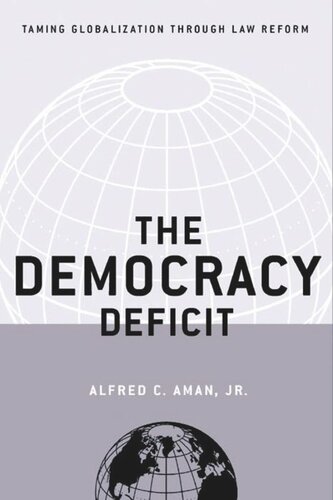

Most ebook files are in PDF format, so you can easily read them using various software such as Foxit Reader or directly on the Google Chrome browser.
Some ebook files are released by publishers in other formats such as .awz, .mobi, .epub, .fb2, etc. You may need to install specific software to read these formats on mobile/PC, such as Calibre.
Please read the tutorial at this link: https://ebookbell.com/faq
We offer FREE conversion to the popular formats you request; however, this may take some time. Therefore, right after payment, please email us, and we will try to provide the service as quickly as possible.
For some exceptional file formats or broken links (if any), please refrain from opening any disputes. Instead, email us first, and we will try to assist within a maximum of 6 hours.
EbookBell Team

0.0
0 reviewsThis is an examination of how the democratic process is being changed by globalization and what citizens can do about it.
Economic globalization has had a chilling effect on democracy since markets now do some of the work that governments used to do through the political process. More than two decades of deregulation have made a healthy economy appear to depend on unrestrained markets. But appearances are misleadingglobalization is also a legal and political process. The future of democracy in the twenty-first century depends on the ability of citizens to reclaim a voice in taming globalization through domestic politics and law reform.
"The book's topic could not be more important: how do we adapt contemporary democratic governance- and contemporary administrative law- to the challenge of a globalizing world?"Kal Raustiala, UCLA School of Law
Can citizens govern globalization? Aman argues that they can, and that domestic law has a crucial role to play in this process. He proposes to redefine the legal distinction between public and private to correspond to the realities of the new role of the private sector in delivering public services, and thereby to bring crucial sectors of globalization back within the scope of democratic reform.
Basing his argument on the history of the policies that led to globalization, and the current policies that sustain it, Aman advocates specific reforms meant to increase private citizens' influence on globalization. He looks at particular problem areas usually thought to be domestic in nature, such as privatization, prisons, prescription drugs, and the minimum wage, as well as constitutional structural issues such as federalism and separation of powers.